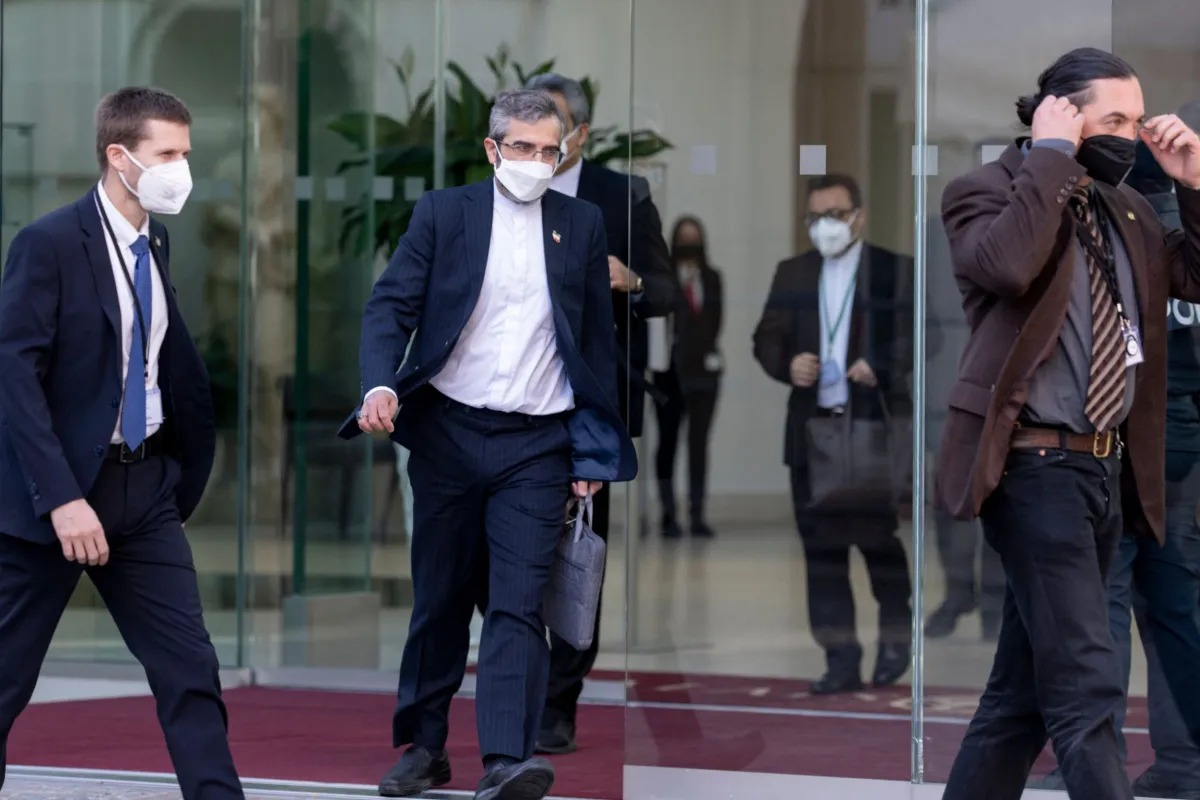- Iran says it is willing to continue cooperating with the UN’s nuclear watchdog.
- It also urged the IAEA “not to yield to Israel’s pressure” over Tehran’s nuclear activities.
- Israel has threatened to attack Iranian nuclear sites if diplomacy fails to save the deal.
Germany expressed regret on Monday that Tehran had not responded positively to European proposals to resurrect the 2015 nuclear agreement, highlighting the dim prospects for a deal soon, as Israel urged action to prevent Iran from acquiring nuclear weapons.
Two days after European powers expressed “serious doubts” about Iran’s intentions regarding the deal, Iran stated that it was willing to continue cooperating with the UN. The International Atomic Energy Agency is a nuclear watchdog (IAEA).
However, it also urged the IAEA “not to yield to Israel’s pressure” over Tehran’s nuclear activities and revealed a drone capable of hitting Israeli cities, which has threatened to attack Iranian nuclear sites if diplomacy fails to save the deal.
On Saturday, France, Britain, and Germany questioned Iran’s commitment to reviving the deal that limits its nuclear program in exchange for sanctions relief, comments that Tehran rejected and Moscow called “very untimely.”
The International Atomic Energy Agency’s Board of Governors meets on Monday, three months after adopting a resolution urging Iran to provide credible answers to the agency’s investigations into uranium traces at three Iranian sites. Western nations have accused Iran of attempting to obtain nuclear weapons. Iran claims that its nuclear program is peaceful and that the IAEA’s investigations are political in nature.
“Iran declares constructive cooperation with the agency as its obligation… While Iran has obligations, it also has rights,” Kanaani said during a televised news conference.
“Naturally Iran expects constructive actions from IAEA and the members of its governing board.”
Kanaani called Saturday’s European statement “unconstructive”.
“Both the U.S. and Europe should prove that they do not prioritize the interests of the Zionist regime (Israel) when taking political decisions,” he said.
After 16 months of indirect talks between Tehran and Washington, European Union foreign policy chief Josep Borrell announced on August 8 that the bloc had made a final offer to resolve an impasse over the agreement’s revival.
Iran sent its latest response to the EU’s proposed text earlier this month. Western diplomats called it a step back, with Tehran attempting to link the deal’s revival to the closure of IAEA investigations into the uranium traces.
German Chancellor Olaf Scholz said in Berlin that there was no reason for Iran to reject European proposals to restart the nuclear deal.
“We are in agreement with Israel that Iran cannot obtain nuclear weapons … I regret that Iran has so far not managed to give a positive response to the suggestions from the European coordinator,” he said.
“There is now actually no reason for Iran not to agree to these proposals. But one has to accept that this is not the case. That’s why this will certainly not happen in the near future.”
Speaking alongside Scholz, Israeli Prime Minister Yair Lapid called for collective action to prevent Iran from obtaining a nuclear weapon and said it was time to move past previous failed negotiations. more info





















